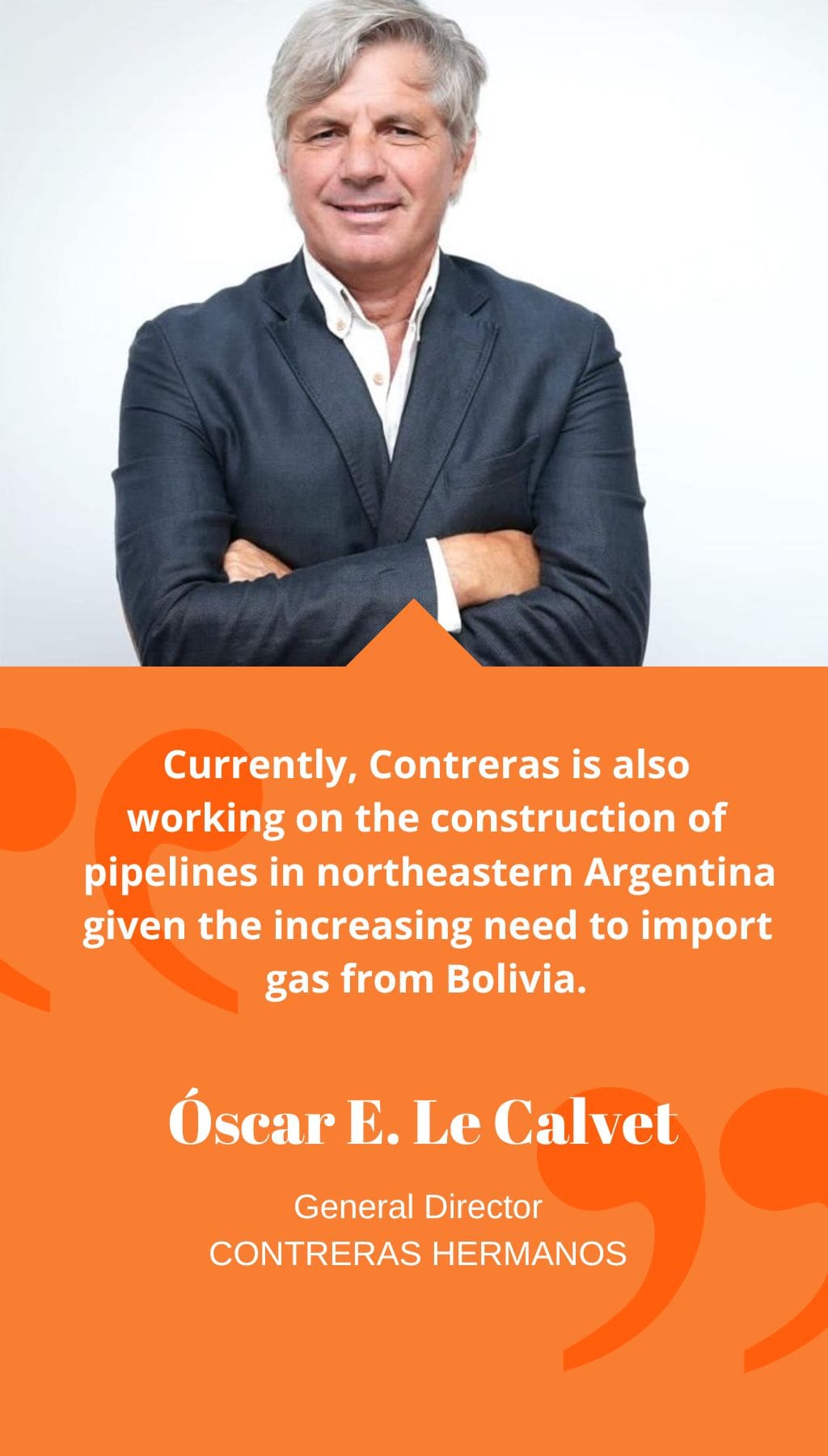
- Argentina | 19 June 2017

Can you provide some examples to highlight Contreras’s history in the oil and gas industry?
Contreras has been a significant player in the oil and gas industry for nearly 70 years, particularly in the development of infrastructure in the San Jorge Basin. The company has been involved in developing facilities for the transportation of oil and the internal road network connecting facilities. In the 1960s to the 1970s, Contreras was the main company involved in the development of this kind of infrastructure. Another important period in the company’s history was when Contreras worked with YPF to develop major transportation lines such as the Tras-Andean oil pipeline that linked fields in Neuquén to Chile. The company’s participation in the Trans-Andean pipeline allowed Contreras to participate in other projects related to the construction of pipelines in the region such as in Chile, Brazil, Uruguay, and Bolivia.
How did the re-nationalization of YPF affect Contreras?
YPF has been an important client for Contreras for many years. From Contreras’s point of view, the most important aspect of the re-nationalization of YPF was its renewed dedication to investing in local projects. Since the 1990s, as a private company, YPF invested little in local projects. Coincidentally, YPF’s re-nationalization coincided with the discovery of Vaca Muerta, which further motivated YPF to invest in Argentina. For Contreras, YPF’s re-nationalization symbolized the rebirth of a client.
How would you describe Contreras’s international strategy?
Contreras’s strategy is defined by a diversification of projects in terms of kind and location. The percentage of Contreras’s revenue coming from international projects varies every year. The company had very good results in Brazil, although its situation is now quite critical given the decline in demand from Petrobras, which was almost its only client. Contreras is trying to grow a little more in Bolivia and make it a permanent source of work. At one point, foreign projects represented 50% of Contreras’s turnover, but today it is around 10% to 15%.
How has the company grown in the last years?
In the last five years, Contreras has undertaken more complex projects with more volume. Contreras’s main projects in Argentina since 2008 have related to the expansion of the country’s gas transport capacity. The government and ENARSA aimed at increasing transport capacity of the pipes that come from all regions. For this project, TGS and TGN have acted as technical sponsors, and the Nación Fideicomisos managed the funding. For several years, Contreras has participated in such projects as contractors for Construtora Norberto Odebrecht. The company has built about 800 kilometers of pipelines of 24 and 30 inches in different sections over time. The expansion is composed of parallel sections from the trunk pipelines and further increasing the compression. Currently, Contreras is also working on the construction of pipelines in northeastern Argentina given the increasing need to import gas from Bolivia.
How would you describe infrastructure in Argentina and how can it be improved?
There is an important gap in infrastructure in Argentina that requires more investment and planning in communications, roads, railways, ports, power distribution, etc. However, this scenario represents important opportunities, especially in Patagonia for companies like Contreras. The company has significant experience in roadway construction and participated in the construction of National Route (RN) 40, which stretches the western border of Argentina and connects Río Gallegos in the north to La Quiaca in the south.














